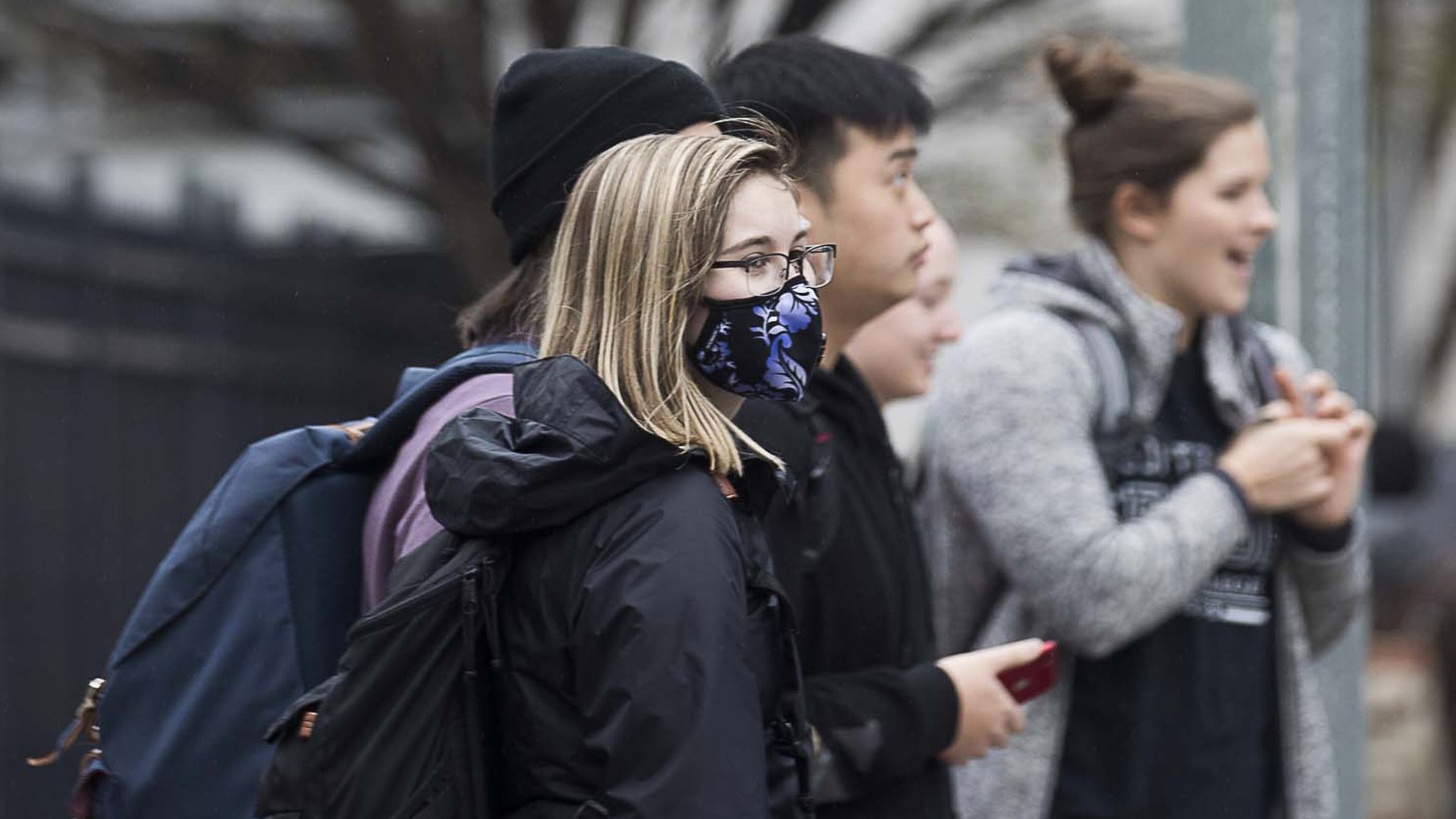Pressure to move Ga. college courses online, but revenue losses could be high

The University System of Georgia estimates its schools could lose at least $479.3 million in mandatory student fees, housing and dining revenue if it goes all-online this fall, according to a spreadsheet obtained by The Atlanta Journal-Constitution through the Georgia Open Records Act.
The data comes as some students and faculty pressure administrators to conduct all classes online, or offer that option, to prevent the spread of COVID-19, as cases have increased in Georgia.
Savannah State University’s Faculty Senate wrote a letter to the system asking for online learning this semester, according to published reports this week. Georgia Tech’s student government association started a Change.org petition this week urging the system to offer online options.
Most of the Atlanta region’s largest public school systems have announced plans in recent days to begin the semester with online learning. On Monday, Georgia’s three largest, private, historically Black schools — Clark Atlanta University, Morehouse and Spelman colleges — announced all classes this upcoming semester will be online, citing the recent surge of confirmed cases in this area and in other parts of the country.
“Because of the pandemic’s escalation in Georgia and nearby states, it seems a near certainty that we will be unable to complete the semester on campus. If faculty and students can plan for a remote semester, together we can make it work with high-quality student engagement through remote lectures, activities, and projects,” said Julia Kubanek, a Georgia Tech biological sciences professor. “In fact, we’re already planning for this eventuality. I’d prefer to not pretend otherwise.”
About one-half of the nation’s colleges are planning for in-person instruction this fall, according to the Chronicle of Higher Education. One-third are planning a hybrid model of in-person and online instruction. Georgia Tech is planning hybrid learning for about two-thirds of its courses. Clayton State University is planning hybrid learning for one-quarter of its classes, while one-half of its classes will be online.
“Had students and faculty been given early and clear plans for what seems inevitable now — a primarily online fall term — we all would have been able to service the students and the citizens of Georgia better. Instead, that time has been spent wading through massive confusion and conflict,” said Ian Bogost, an interactive computing professor at Georgia Tech.
While most students have been off University System campuses since March, a few remain or live nearby. Some have been diagnosed with COVID-19. For example, 15 Georgia Tech students were diagnosed with the disease in a recent two-week stretch.
The University System, which had more than 330,000 students last year, has said it is following state and federal health guidelines — with input from the governor’s office — to plan for the fall semester.
The fall plans have consistently included students returning to campus. The system announced Thursday it is sending more than 835,000 face masks and nearly 1,200 cases of disinfecting wipes to its schools for the fall semester.
Online instruction received mixed reviews during the spring semester. The biggest complaint from students was internet connection problems where they lived.
Twenty-five University System presidents wrote a letter dated July 8 to the system’s chancellor, Steve Wrigley, that said in part: “(r)esuming in-person classes this fall will be a difficult but important task, and it is one we are committed to achieving, as it serves the best interests of our students and the State of Georgia.”
Wrigley’s budget team came up with the cost estimate of going to online learning a week later. The system, which will receive about $2 billion in state funds this fiscal year, saw a more than $300 million loss of revenue during the spring and summer semesters due to the COVID-19 pandemic shutdown.
Another $479 million revenue decline for the fall semester could be staggering for a college system that also took a 10% funding cut from the General Assembly as part of statewide spending reductions for fiscal 2021 due to the COVID-19 recession.

In an email obtained by the AJC, Wrigley said that the $479 million figure is likely conservative, given that it’s unclear how many students will choose to attend the fall semester. He also says it could have a “significant impact on employment.”
System officials said the campus experience is important in response to questions about its approach to fall learning plans.
“We continue to evaluate options that support quality instruction and prioritize the health and safety of our faculty, staff and students,” said Aaron Diamant, the system’s spokesman. “While we successfully made the transition to online-only instruction last spring, we believe in the value and importance to students of the campus experience.”
--
The push for online instruction is also being made at some private Georgia schools such as Mercer University.
One student, Adri Rosario, posted a YouTube video demanding online options that has more than 4,400 page views. Another student wrote an op-ed in the school’s student newspaper on Wednesday with the headline: “Mercer is making a big mistake re-opening in the fall.”
Rosario told the AJC the school’s COVID-19 testing and current housing plans may put more students and faculty at risk of getting the disease. The university, for example, has a three-year student housing requirement.
“We have to wonder, is this a decision of putting money before lives?” Rosario, 20, a rising junior from Gwinnett County, asked in the video.
Mercer, one of Georgia’s largest private universities, had about 8,700 students last school year, federal data shows. University leaders on Wednesday released updated guidelines for the fall plans that include required COVID-19 testing for students before returning to campus and an on-campus testing facility. The university is mandating students wear face coverings and providing each student a kit that includes a cloth mask, hand sanitizer and a digital thermometer.
“We are committed to providing the very best Mercer experience we can in the safest possible environment and will continue to send you updates as we approach the beginning of fall classes in mid-August,” Mercer President Bill Underwood said in a statement to students and employees.
Rosario, who noted that she’s previously enjoyed her Mercer experience, said she’s been dissatisfied with discussions with university administrators regarding student concerns. Rosario said one official said students can transfer from the university if they do not feel comfortable about returning. She and others are focusing on social media to get their message across to the university.
“There’s not really a clear avenue to advocate through the university,” she said. “That’s always been the way, but this (dispute) reveals it.”
PROJECTED LOSSES
Here is how much money some of Georgia’s public universities could lose by going solely to online instruction for the fall semester, according to estimates by the University System of Georgia.
University of Georgia $76.7 million
Georgia State University $57.6 million
Georgia Tech $56.5 million
Kennesaw State University $50.4 million
Georgia Gwinnett College $14.5 million




